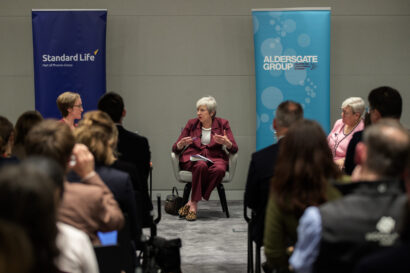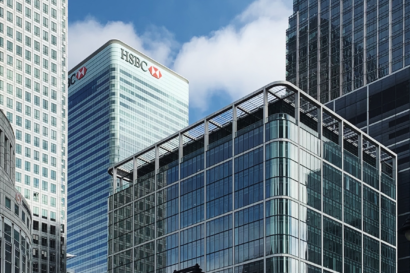AG INSIGHT | 05/11/2025
UK priorities for COP30: the business perspective

In the wake of the devastation wreaked in Jamaica by Hurricane Melissa, the world is looking to COP30 in Belém, Brazil for faster and deeper progress on tackling the climate crisis. The Aldersgate Group looks at COP largely through the lens of businesses eager to play their part. Businesses are not a homogenous grouping, and they will be affected very differently by climate change according to their sector, geographies, supply chains, size and more. However, all agree that this must be the decade of delivery. With only five years left until 2030, and as climate impacts intensify across continents, the UK and other major economies must show credible, whole-economy progress, or risk eroding trust in the Paris Agreement.
Ahead of COP30, I gave evidence to the UK Parliament’s Environmental Audit Committee on businesses’ hopes for the summit, informed by conversations with Aldersgate Group members. I also chaired a fascinating conversation between the Rt Hon the Baroness Theresa May and Rachel Kyte, the UK’s Special Representative on Climate, exploring lessons and expectations for COP30.
From these discussions, four priorities stand out for UK businesses ahead of COP30.
1. This is the most complex COP for a decade
Multilateralism is more vital than ever, especially amid geopolitical instability and US disengagement. Without the COP process, individual nations would struggle to act confidently on climate change. It’s wonderful that nearly 200 states have signed up to the Paris Agreement – this could only have happened in the context of the UNFCCC. The UK’s role as a trusted convener and advocate for collective climate action remains crucial, and will be boosted by the Prime Minister’s attendance.
Less encouragingly, as of September 2025, only 36 countries (around 18%) had submitted their updated 2035 Nationally Determined Contributions (NDCs), despite the February 2025 deadline. In addition, finding long-term financing solutions for adaptation and mitigation in the Global South remains deeply challenging.
2. NDCs need to raise ambition and credibility
The next round of NDCs will be central to COP30. The UK should press for renewed ambition from lagging nations and, crucially, for a relentless focus on implementation. NDCs send market signals about economic direction, but those signals must be backed by policy. Laws, regulations and public investment frameworks are what turn pledges into action and attract private capital.
The UK has shown leadership by submitting its own NDC early, and has now also published a new Carbon Budget Delivery and Growth Plan for the sixth carbon budget period (2033-2037), setting out how the targets will be met. Others need to follow.
3. Fast progress is needed on adaptation
Adaptation, long the poor cousin of mitigation, must now take centre stage, and is rightly a top priority for the Brazilian Presidency. Comprehensive National Adaptation Plans, underpinned by scaled-up finance and measurable targets, are critical. The UAE–Belém Work Programme, established at COP28, provides a vital platform for operationalising the Global Goal on Adaptation. The UK can lead by ensuring that adaptation indicators are woven into economic planning, infrastructure investment and spending decisions. We also need to make clearer, and integrate more effectively, the cost of not acting.
Integrating adaptation across public policy provides businesses with certainty and creates investable opportunities. For example, clear resilience metrics can unlock finance for nature-based flood defences or heat-resilient infrastructure, aligning adaptation with economic development.
4. Detailed commitments and structures are needed on climate finance
Financing the global transition is a central focus for COP30, with growing agreement that achieving climate goals requires significantly increased investment in nature protection, climate adaptation and a just transition. Many developing countries continue to face a fragmented funding landscape across public, private, philanthropic, and multilateral sources. To deliver the necessary scale of investment, a coordinated approach is needed which brings together governments, development banks, institutional investors, and civil society around a shared mission.
As part of this, reforming multilateral development banks (MDBs) is essential. They must be empowered to take on greater risk, attract private capital, and streamline approval processes. In addition, the UK can play a leadership role by strengthening capacity in finance ministries, facilitating dialogue between governments and investors, and clarifying the roles of concessional and commercial finance. MDBs should act as catalysts for blended finance and local market development.
Climate and nature goals must be pursued together. Natural capital and ecosystems are not just environmental assets; they are foundational to economic and financial stability. Climate finance that supports nature protection and restoration offers multiple benefits: lowering emissions, increasing resilience and supporting livelihoods.
Governments can help unlock private investment in nature-based solutions by providing regulatory clarity, developing voluntary and compliance markets, and implementing risk-sharing mechanisms. These tools can mobilise global capital, particularly in the Global South, where natural resources are abundant but financial flows remain limited.
From ambition to delivery
Businesses and civil society are ready to play their part. Many firms have set ambitious carbon reduction plans and understand that climate risk is now a material financial risk. But they need a level playing field. When all businesses face the same standards, climate ambition becomes a source of competitiveness rather than disadvantage. We urge world leaders to ensure that COP30 delivers the structures needed for real-world implementation.
Rachel’s contribution to the Environmental Audit Committee used in a letter to the Secretary of State on COP30. View the EAC letter here.


